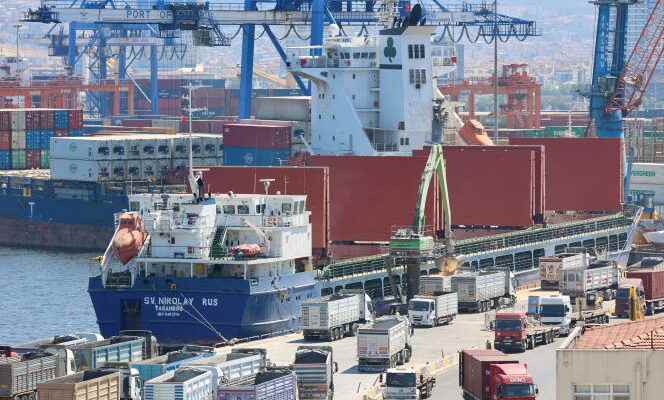Western sanctions imposed on Russia have thrown whole swaths of its foreign trade into the dark. Some figures suggest that Russian companies are doing quite well to continue sourcing and sustaining operations. While imports contracted by 38% between February and July, according to estimates by the Bank of Finland, the Russian economy is holding up better than expected, with GDP expected to contract by 3.4% in 2022, according to the latest forecasts of the International Monetary Fund, against 8.5% anticipated in April. To squeeze through the interstices of global trade, Russian companies at least know who to ask for advice. In June, the daily The Financial Times reported the numerous visits of Russian businessmen to Iran who sought to understand how, in a country subjected to American sanctions for four years, so many iPhones could circulate. They were told about trade routes through Turkey or northern Iraq.
In late August, US Treasury Assistant Secretary Wally Adeyemo warned his Turkish counterpart that “Russian entities and individuals” used the country to circumvent the sanctions imposed on Russia. In fact, the only NATO member state not to apply sanctions has seen its trade with Russia increase by 42% in six months. The cargoes arrive in the ports of Istanbul, Mersin or Izmir and are then loaded onto ships of Turkish shipping companies, to head for the Russian port of Novorossiïsk, on the Black Sea.
Russian businessmen can also obtain a Turkish passport, with 405,000 euros of real estate investments, and create local companies to serve as intermediaries in trade between their country and the rest of the world. “Turkey appears to be one of the main beneficiaries of the sanctions, judging by the increase in its foreign trade and its balance of payments, which has doubled during the first eight months of the year”says Timothy Ash, economist at BlueBay Asset Management.
Rubles against cryptocurrencies
We still have to find ways to send money abroad, without going through the Swift global banking system, from which Russia has been banned. The Duma, the Russian parliament, is soon to pass a law authorizing the use of cryptocurrencies for the settlement of international transactions, in the wake of Iran. At the end of March, Christine Lagarde, the president of the European Central Bank, accused Russian companies and citizens of circumventing sanctions by exchanging their rubles for cryptocurrencies. “The products most affected by the sanctions are those that use technologies whose use is both civil and military, such as semiconductors”, explains Mr. Ash. According to figures provided by the European Union, Russia depends for its imports of high-tech products on Europe for more than 45%, the United States for 21% and China for only 11%. “Even if they are circumvented, continues Mr. Ash, the sanctions increase the cost of imports, which harms the Russian economy. »
